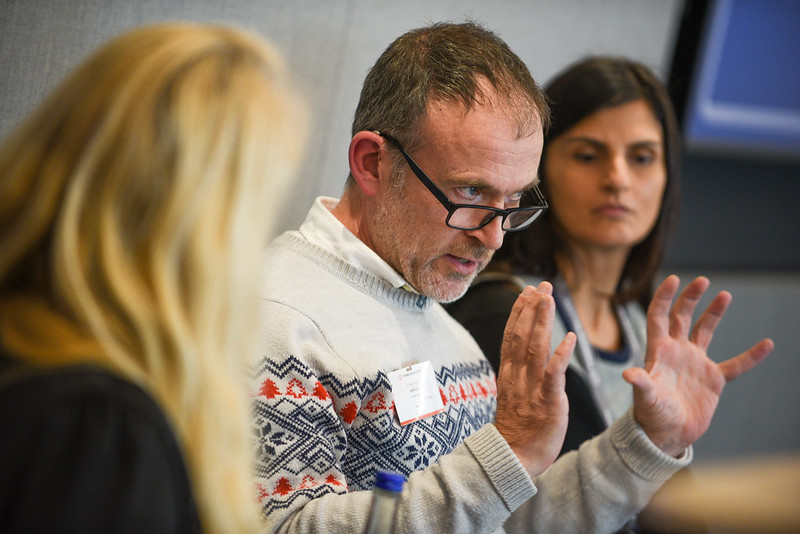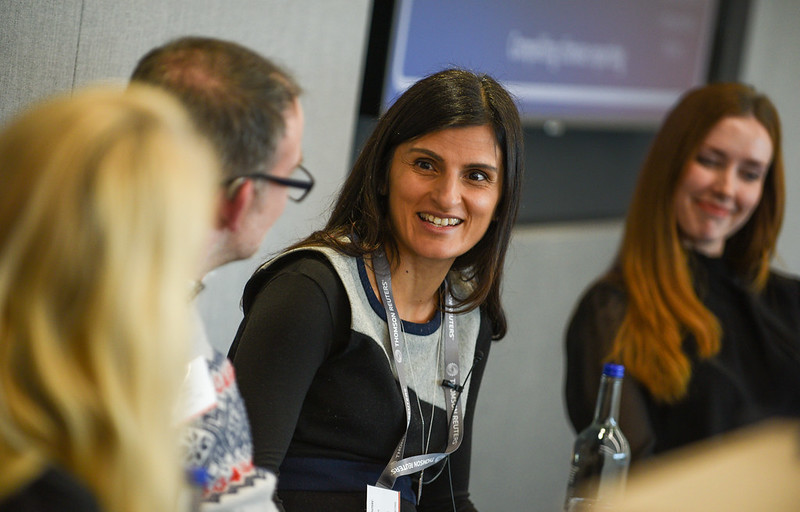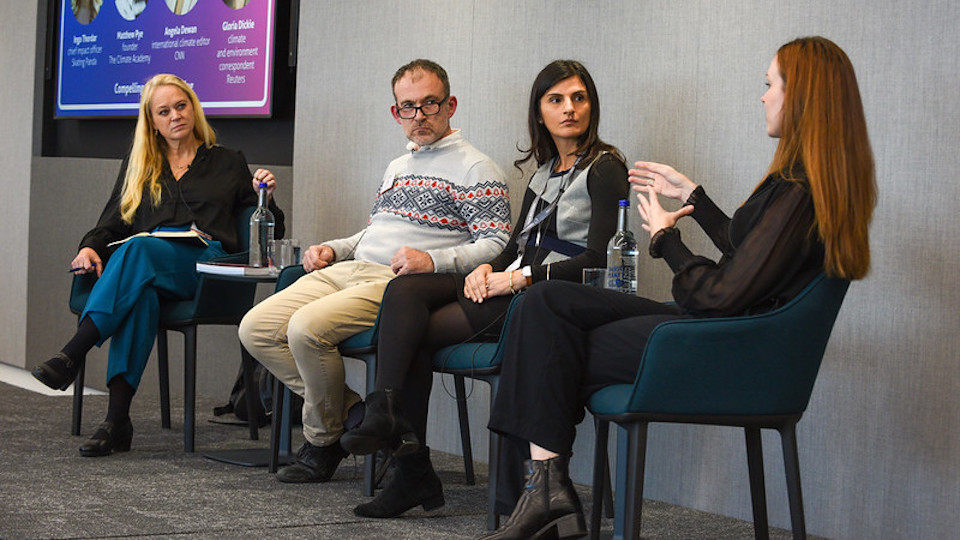There is a tendency among journalists to talk about the symptoms of climate change, such as the weather, deforestation or rising sea levels. Our reporting rarely looks at the causes, said Inga Thordar, chief impacting officer at Skating Panda, a social impact consultancy, at Newsrewired last week.
But journalism should not focus solely on extreme weather events. Our role – and climate is no exception – is to hold the powerful to account. Whether it is scrutinising the fossil fuel industry or questioning the impact of our economic model underpinned by growth, journalists need to treat climate like any other beat.
“There is a great level of ecological illiteracy,” says Matthew Pye, founder of the Climate Academy. He gives an example of general apathy when scientists talk about the planet warming up by 2ºC.

“2ºC today – what difference does that make? But 2ºC for your body is like having a flu and you can’t function.
“At a system’s level, the temperature has a system’s effect. And 4ºC, which we are on track on for the end of the century, it’s hyperpyrexia and that’s death in 24 hours for the human body.”
The panel agreed that the situation is dire and stories are often negative. However, “we are negative for a reason,” says Gloria Dickie, climate and environment correspondent at Reuters. The downside of a constant stream of negative news, however truthful, is that audiences turn away from the media to protect their mental health.
“That is where solutions journalism comes in,” suggests Angela Dewan, CNN’s first international climate editor. As well as covering the threats, our job as journalists, she continues, is also to interrogate climate initiatives and monitor their feasibility and impact.
The story angle also matters. Dickie saw a shift over the past 10 years from topics like individual carbon footprint to more investigations that focus on the fossil fuel industries, shifting the “blame” from the individual back to those responsible for CO2 emissions in the first place.
Just Stop Oil is not a fancy-dress party
The lack of understanding of climate science, combined with inadequate training in climate reporting, results in journalists having a distorted perspective of what matters to the audience. Thordar gave an example of the media coverage of Just Stop Oil, a British environmental activist group known for their disruptive campaigning tactics.
“Just Stop Oil makes perfect sense to me,” says Dewan, pointing out that the movement is largely made of young people who are rightly worried about their future.

While it is compelling to cover the short-term outrage of people who cannot drive to work because of activists who obstruct the traffic, this is not put into perspective of long-term threat of climate change that will affect the very same people in much more dramatic way in the decades to come.
As Dewan puts it, we do not put into perspective the inconvenience of not being able to drive on people’s usual road with the possibility of that road being under the sea in 50 years’ time if nothing changes.
Climate misinformation and denialism
Although an outright denial of climate change is rarer than a decade ago, voices against environmental actions are still strong.
Pye pointed out that we do not have a standard tools – “a global stopwatch” – by which we monitor how close countries are to their carbon neutrality pledges. Without data and continuous tracking, it is impossible to hold governments to account.
“Why we do not have a clear, global climate index based on science?” he asks, while spotlighting resources like CUTx% that shows what is required to meet the objective of the Paris Agreement.

